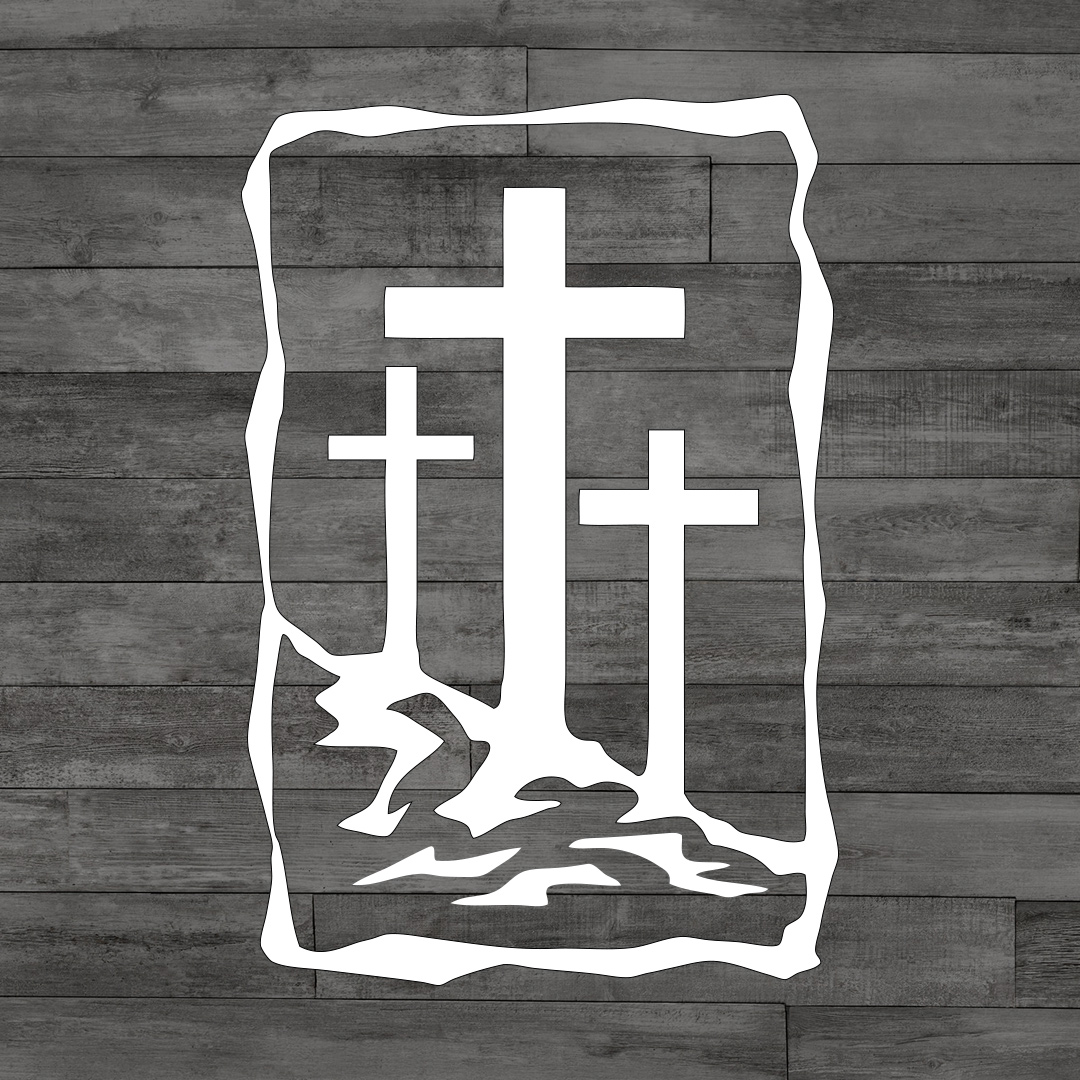Why does Jesus push back against requests for signs and wonders? Why not just do everything we want him to do? Netflix and YouTube are “on-demand” … why not God? Why does Jesus push back when the royal official asks for a sign? Why does he push back when we come to him asking for help? I can think of at least three reasons.
Some points of interest in today’s passage:
First, Jesus is largely rejected by the elite in Jerusalem in the south, but welcomed by Samaritans and the people of Galilee – two areas with large gentile populations. Outsiders are much more willing to receive and believe than insiders.
Second, this is speculation, but the royal official may well be Chuza, whose wife, according to Luke 8, was Joanna, one of the women who supported Jesus’ mission by preparing meals and who was there at the empty tomb. We know from Luke that Chuza was the steward of Herod’s estate. It seems plausible that this royal official, whose whole personal household - including his wife - comes to believe, is a likely candidate for Joanna’s husband, Chuza. I acknowledge that it is speculation, but for today’s message, I might refer to the man as Chuza.
Remember also that his boss, Herod, was not a very observant Jew. He was more interested in having the Romans like him, and did many things that offended Jewish sensibilities. While few people had the courage to openly question Herod’s legitimacy and lifestyle, it is probably safe to assume that the average God-fearing Galilean viewed Herod’s professed Judaism with significant skepticism. John the Baptist was one who dared question Herod openly, and it cost him his head.
This is important, because if this royal official was indeed associated with Herod, it meant that Jesus was probably breaking a social taboo by speaking with him.
Third, notice that the royal official calls Jesus “sir”. Actually, the Greek word is “kurios” which is usually translated into English as “lord”. At this point in the official’s developing faith, he probably is using the word with a lowercase “l”, as a term of general respect, rather than with an uppercase “L”, recognizing Jesus’ divinity. That level of belief comes at the end of the story. The translation “sir” is fair, if we think of it more along the lines of a more formal title of respect, something like “sir Lancelot” or “sir Paul McCartney”. Either way, it is remarkable that a royal official would address a wandering teacher like Jesus with a title reserved for those in authority. It shows that his heart was open to the idea that Jesus might be something more than just a good teacher. May our hearts be just as open!
Finally, notice the pushback Jesus gives Chuza. You can hear the exasperation in verse 48 when Jesus says, “Unless you people see signs and wonders… you will never believe.” This is the same pushback that Jesus gives elsewhere in the gospel when asked for a sign.
He pushes back on Mary, his own mother, when she asks him to help with the wine at the earlier wedding in Cana:
“Woman, why do you involve me?” Jesus replied. “My hour has not yet come.” (John 2:4)
He pushes back when the Pharisees and the Sadducee come looking for a sign in Matthew 18:4:
“A wicked and adulterous generation looks for a sign, but none will be given it except the sign of Jonah.”
Again, he pushes back when the crowds beg him to show them a sign right after he fed 5000 of them with a handful of dinner rolls and a couple of sardines:
In John 6:30, the crowds, still picking bread from their teeth, say to Jesus:
“What sign then will you give that we may see it and believe you?”
Jesus replies (and I’m paraphrasing here), “You’re asking for yet another sign, besides the free lunch I fed you yesterday? You want more bread from heaven? I’m not here to play games. Chew on this - I’m the only bread you need.”
We see this time and time again in the gospels, Jesus often pushes back, and pushes back strongly, when people come to him asking for a sign. Some of the most troubling words we have from Jesus are given in those moments when someone begs him for a sign. Whether it is his mother at the wedding in Cana, or the Syrophoenecian woman in Mark 7, or the royal official in today’s story, a pattern emerges in which Jesus is utterly exasperated by people who come to him only when they need him to fix something.
We mistakenly think it will help our chances if we can just use the right sounding words… if we could somehow slather our speech in spiritual ooze, we think we might be able to get him to perform for us, like a dancing bear in chains.
When we come to Jesus like that, we shouldn’t be surprised that he pushes back, and pushes back hard.
Why does Jesus push back against requests for signs and wonders?
Why not just do everything we want him to do? Netflix and YouTube are “on-demand” … why not God? Why does Jesus push back when the royal official asks for a sign? Why does he push back when we come to him asking for help?
I can think of at least three reasons.
First, Jesus pushes back to challenge our immaturity.
What would you say of someone who gets all dressed up to go out to a fancy dinner at the finest steakhouse in town, is seated by the maître d' at the best table, peruses the menu thoroughly, and finally settles on their selection for the evening: a jar of baby food?
The Bible offers strong correction to Christians who do the same thing spiritually.
“Brothers and sisters, I could not address you as people who live by the Spirit but as people who are still worldly—mere infants in Christ. I gave you milk, not solid food, for you were not yet ready for it. Indeed, you are still not ready.” (1 Corinthians 3:1-2)
Jesus is absolutely capable of performing signs and wonders – and he often does so in the Gospel accounts. But in most of those cases, miracles are the training wheels of belief. They serve as a jump-start; there is no denying that supernatural signs have helped some of us here today get past the tipping point of belief in Jesus.
But there comes a time when the training wheels have to come off, and we must learn to trust and obey. Can you imagine the Tour de France with each rider using training wheels? Absurd! And yet that is a picture of many in the body of Christ who have never matured in their faith enough to cease demanding signs and start walking in obedience.
We must learn to grow without the benefit of having every little thing spoon fed to us. Mature faith must advance beyond juvenile demands for signs and wonders.
Another problem with miracles: while they may spark a fire, they rarely provide the fuel for lasting faith. One need only turn a few pages ahead in John’s gospel to see the crowds turn away from Jesus as soon as the going gets tough. And these are the very same people he has healed and fed only a day before – with undeniable miraculous power.
Even though they saw signs and wonders with their own eyes – saw the lame walking, tasted the loaves and fish – when the road of belief became difficult – or perhaps merely inconvenient – they abandoned their belief, and they abandoned the Lord.
When our motivation is to be served by God on our terms, like babies crying for more mash, of course he is going to push back. When Jesus pushes back, he is telling us that it is time to grow up.
Second, Jesus pushes back because he wants us to know that he has a will too.
Sometimes we don’t know what is best for us. In fact, I think it is safe to say that most of the time, the things we think are the best for us turn out to be the absolute worst things for us.
Whenever we ask for divine intervention, it must be tempered with these words: “Thy will be done.” Even Jesus prayed in the garden on the night before he was nailed to the cross:
“Father, if you are willing, take this cup from me; yet not my will, but yours be done.” (Luke 22:42)
One of the marks of enduring faith is having a heart that cries out to God when it is in need, but always appending the words, “Yet not my will, but yours be done.”
Third, Jesus pushes back because thorns can also be a sign.
Those things we dislike the most can also be a sign and a wonder. It isn’t that Jesus cannot heal us – it is that he often is working out a higher purpose through our suffering. I did not say that God always causes our suffering, but that He always provides a means to repurpose it for good.
The apostle Paul prayed to God three times to remove a thorn in his flesh. We don’t know what that thorn was, exactly. It could have been a physical ailment, or an opponent to his work. But we do know that God did not take the thorn away, even though the mighty Apostle Paul prayed with the utmost faith. In fact, Paul eventually realized that the thorn he suffered was used by God to shape and grow him spiritually. Listen to what Paul says about the pushback of Jesus in 2 Corinthians chapter 12, verses 7 through 10:
Therefore, in order to keep me from becoming conceited, I was given a thorn in my flesh, a messenger of Satan, to torment me. 8 Three times I pleaded with the Lord to take it away from me. 9 But he said to me, “My grace is sufficient for you, for my power is made perfect in weakness.” Therefore I will boast all the more gladly about my weaknesses, so that Christ’s power may rest on me. 10 That is why, for Christ’s sake, I delight in weaknesses, in insults, in hardships, in persecutions, in difficulties. For when I am weak, then I am strong. (2 Cornthians 12.7b-10)
God displays His greatest strength at our weakest points. When we are strong, we tend to seize center stage. When we are weak, center stage is surrendered to Christ. Different thorns come for different reasons but all thorns can teach us. When Jesus pushes back and doesn’t remove our thorns in the time or method we would prefer, we must learn to say along with the songwriter Twila Paris:
Thank you for this thorn...
And if You chose to take it, I will praise You
And thank You for the healing in your name
But if it must remain, I thank You for Your rod
Evidence of Father-love for a child of God
Why the push back?
Because we need it. First, because He wants us to grow and mature. Second, because He not only loves us, but He also wants the best for us. And third, because he knows that sometimes we need the permanent sign of a thorn in the flesh more than we need the temporary miracle of a healing.
In the end, we all need to sort out our relationship with signs and wonders in a way that gives glory to God. Come to him – of course, ask for what you need – but always acknowledge that He knows what is best. May we continually learn to pray, “Not my will, but yours be done.”

